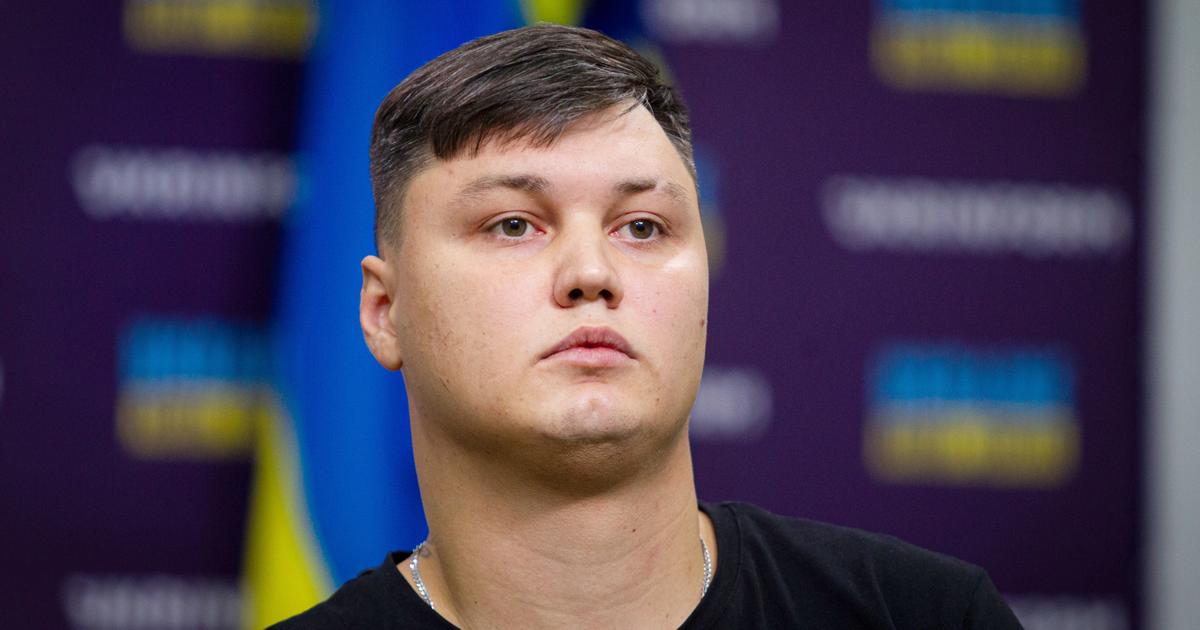“I don't really like being compared to Chekhov; There are not so many similarities either, ”says cardiologist Maksim Ósipov (Moscow, 58 years old), between modest and annoying. But like the author of
The Lady with the Puppy
, few writers like him are in Russia today dissecting the reality and soul of his people in such depth, that he brings out in every detail, autopsies praised even by the demanding Nobel Svetlana Alexievich. Due to this ability to capture the most imperceptible, Ósipov admits, he prefers the story to the novel.
The cry of the domestic bird
(Club Editor, 2015) marked a path that now unquestionably consolidates the ten long stories of
Piedra, papel, tijera
(Asteroid Books; Club Editor, in Catalan), which these days presents in Barcelona.
Ask.
Chekhov, Bulgakov, you… Better to be a doctor to literally take the pulse of a Russian body that seems eternally sick?
Answer.
Being a doctor you come into direct contact with people, life and death, something that other jobs do not provide you with;
Luckily, no one has proposed that I cure Russia, but it is evident that Russia today is not a healthy society, it is getting sicker and sicker... The people of my generation and my social circle have lost;
you read the stories of a Russian who has lost: the meaning of History has gone down paths that we could not even imagine in the worst of nightmares in the nineties.
P.
Your stories do not exude much happiness;
and if there is, it is so ephemeral...
R.
In my stories there is no hope;
It is not a black look, but at most, they give for compassion.
We know that happiness exists, but there is so little in the world that I reflect it.
Q.
Your characters seem to conform to their fate.
Is it something very Russian?
A.
No, it is not;
the Russian never seeks agreement or balance;
that is seen as a transfer, but, yes, my characters are not revolutionaries.
P.
One of them, in the story
Sventa
, states: “My concerns from more than 30 years ago are the same as now: not to get smeared, not to degrade oneself, not to end up in prison, not to get distracted when it is time to leave forever” .
Has Russia been stranded in time?
R.
It is curious that you quote it: it is the phrase that I sent by letter to the resistant Maria Kolesnikova [the activist who is in prison after leading the protests for democracy in Belarus].
Russia and the former former USSR are moving, but towards the abyss;
especially this last year: the repressions already have a systematic character.
What will happen in Ukraine?
It is very likely that war could break out: there are too many concentrated troops and not very smart people in power on each side.
Half of Russian youth wants to leave the country”
P.
Army, prison, drugs and business: it is the ring in which the students of the teacher of the story that gives the book its title are destroyed.
Are those sad coordinates still valid?
R.
That was more in the nineties;
today, his option is different: half of the Russian youth wants to leave the country.
Not long ago I went to read some stories in a high school and 12-year-old boys asked me, even with a violent tone, why I came back from the United States when I finished my research at the University of California.
Q.
And why did you come back?
R.
My idea was never to leave the country and not return.
In the early 1990s, shortly after Perestroika, we thought we had won, not lost.
There was no reason, then.
Today, of course, I changed my mind.
Now leaving may be too late for me, but I don't rule it out entirely.
My daughter lives in Germany, she has more possibilities there as a violinist, but my son is a doctor in Russia… My heart is divided.
P.
In the stories a degradation of the democratic processes is perceived, the transfer of power that went from the communist party to "a small and vile people", he describes it at some point...
A.
Power in Russia today belongs to the secret police.
It is that resounding.
It is worse than in the Soviet era because that power was more or less disputed between the KGB, the army and the political structure;
today everything is in the hands of the secret police.
The people have never ended up participating in the change nor have they come to power;
it did not give time for the institutions to mature… What happened in the 90s was a missed opportunity.
Today I have less hope than at the end of Soviet times...
Q.
Why?
R.
The illusions were based on the fact that it would be enough to remove the communist party from power, give opportunities to the great talent that had been buried in Russian society and that the West would help us... Everything was in vain illusions.
Russian institutions are fictitious;
Citizens only have Facebook left as the only form of sincere social communication that works”
P.
The hospitals in your stories are, for the most part, a disaster due to the underendowed;
the roads, bad… Is Russia a papier-mâché power?
R.
It happens, basically, that the institutions are fictitious;
everything is very fictitious;
Citizens only have Facebook left as the only form of sincere social communication that works.
Q.
Your settings are mostly provincial cities;
You live and work as a doctor in Tarusa, 101 kilometers from the capital...
R.
The explanation is very simple, human: there, each noise, each sound, each person is identifiable;
it is also more comfortable, as my teacher says: under my feet, I have earth and above, the sky, not a neighbor above and below.
15,000 inhabitants live in Tarusa: there I am not afraid of the police or anything because I know almost everyone, the dimensions are more human...
We writers notice the shadow of censorship, but it has not yet specifically affected literature”
P.
Do you have problems with the Russian authorities?
R.
Not big problems today, really;
we notice the shadow of censorship, but it has not yet specifically affected literature;
now, yes: this same conversation is unthinkable on a television or on a radio in my country.
Q.
There is worldly corruption and a pattern of corporate behavior that you describe as a “go and get it”…
R.
Responds to a businessman more from the 90s, again, than from today;
You may not believe it, but corruption is not as serious as it was then..., nor as negative;
I hope that it will be even more serious: with corruption there is more scope and possibilities to do more things… Let me be a bit rude: the house is made of shit, but if you take it away, there is no house left…
P.
Literature, especially Lermontov and Pushkin, and music are in almost all the stories: they read them, they preach, they study… Are they redemptive lifesavers for their existentially drowned characters?
R.
Neither literature nor music save anything.
WH Auden said: “Poetry doesn't make anything happen.
He survives in the valley of his saying”.
Life itself incorporates art;
if it helps, great, but it's not your goal;
if I write a story it's because it helps me understand what I think, I don't do it to pass the time or make the reader pass it by... Look, I write very little, I don't have the feeling that I have to say anything to people;
I don't have the attitude of a Tolstoy, a Grossman or a Solzhenitsyn: I don't want to write that Stalin was bad, or give any message...
Q.
What do you write about, then?
R.
I write about how insignificant or empty reality is, about the person, the human being, not about the Russian of the 21st century...
P.
They are, by the way, human beings that we see in a fragment of their lives, that, although we know everything, we only
see
for a while...
R.
Human beings, especially men, do not change: today I meet schoolmates and they are what they were then.
Q.
Does the fact that they are fragments explain why you dedicate yourself more to the story than to the novel?
R.
The story seems closer to me and also better to let go of ideas;
You have to work much harder on each word, pay more attention... The reader must also do it;
in a novel it is easier to skip over the details.
In
Fantasia
, the last story, the character radically changes in two lines;
in a novel it is more difficult to make that turn, in the story those details have more weight.
P.
And that detail is not Chekhovian?
A.
Maybe, yes, I don't know...

/cloudfront-eu-central-1.images.arcpublishing.com/prisa/RXLCGGTHFVK4TRRYMJAF2HC5IE.jpg)













